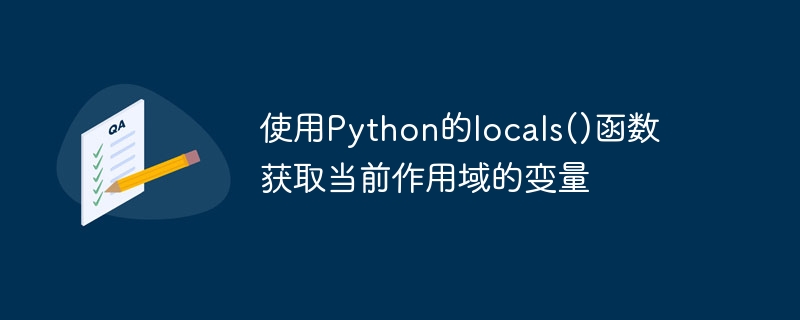

Use Python's locals() function to get the variables of the current scope
In Python, locals() is a built-in function that can be used to get the current scope all variables in the domain. This function returns a dictionary containing all variable names and corresponding values in the current scope.
In the programming process, it is very useful to understand the variables in the current scope, especially during the debugging stage, which can help us view the value and status of the variables. The locals() function provides exactly this function.
The following is a simple example showing the use of the locals() function:
def foo(): x = 10 y = 20 print(locals()) foo()
In this example, we define a function foo, which contains two variables x and y. Inside the function, we call the print(locals()) statement, which prints all variables in the current scope.
When we run this code, the output result will be a dictionary with the following content:
{'x': 10, 'y': 20}
As you can see from the result, the key of the dictionary is the variable name, and the corresponding value is the value of the variable.
It should be noted that the locals() function can only obtain variables in the current scope, it cannot obtain variables in the external scope or global scope. If we call the locals() function outside the function, we will get a global scope variable dictionary.
In addition to obtaining variables, the locals() function can also be used to dynamically create variables. For example, we can add or modify the value of a variable by modifying the locals() dictionary. However, it should be noted that this usage is not recommended because it increases the complexity of the code and may lead to unpredictable errors.
To summarize, the locals() function is a very useful Python built-in function, which can help us get the variables in the current scope. By using this function, we can more easily view the values and status of variables and thus better understand our program.
I hope this article will help you understand the use of the locals() function.
The above is the detailed content of Use Python's locals() function to get variables in the current scope. For more information, please follow other related articles on the PHP Chinese website!




